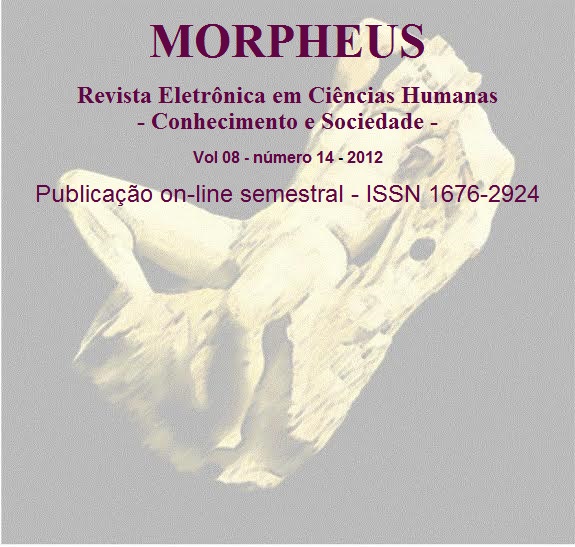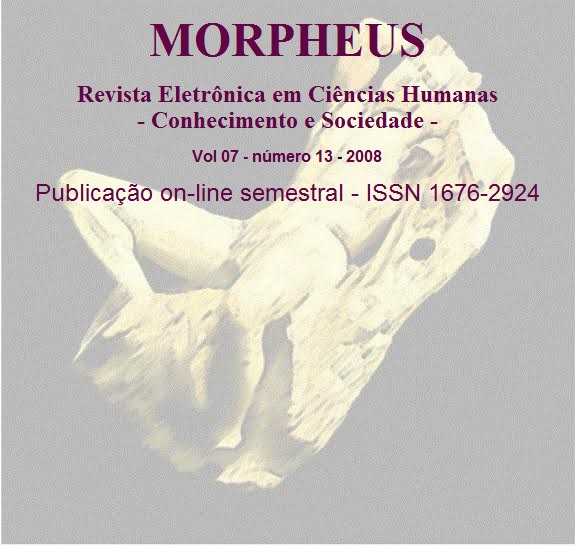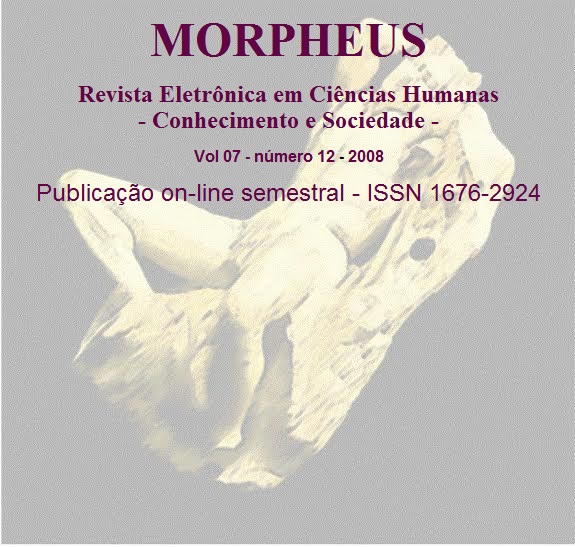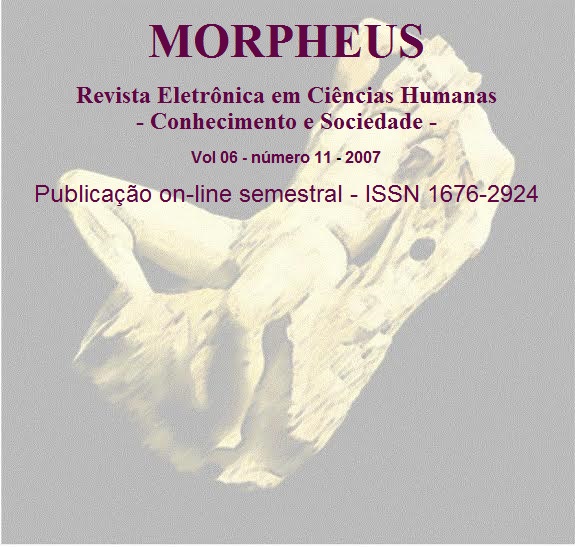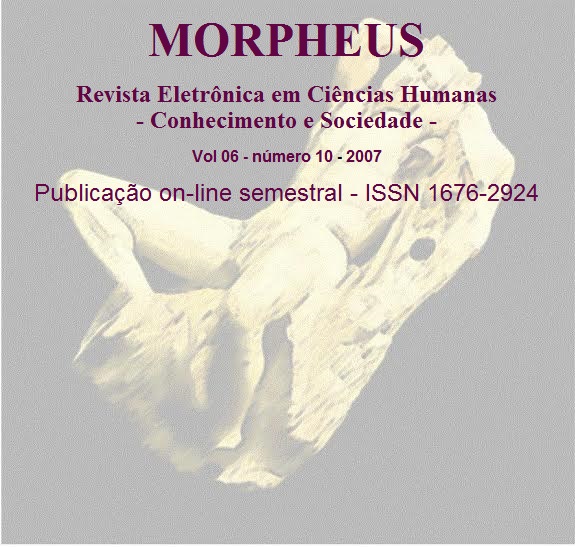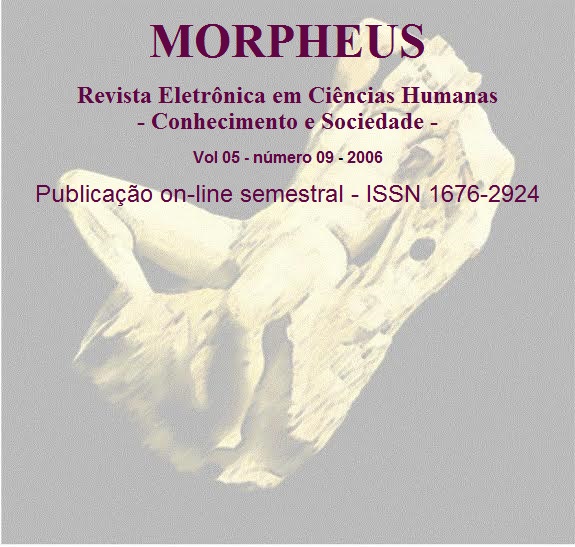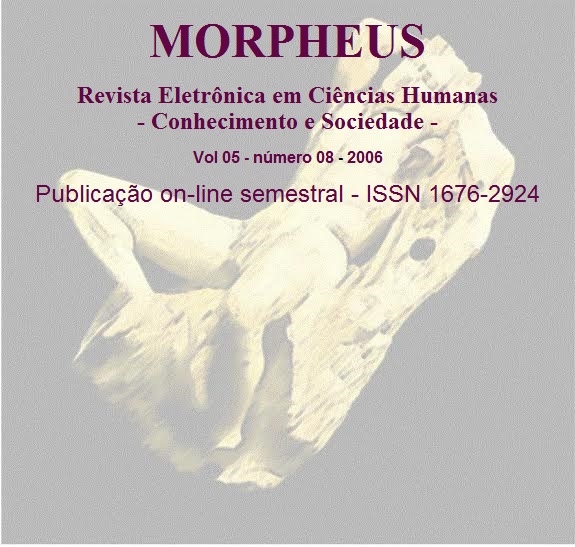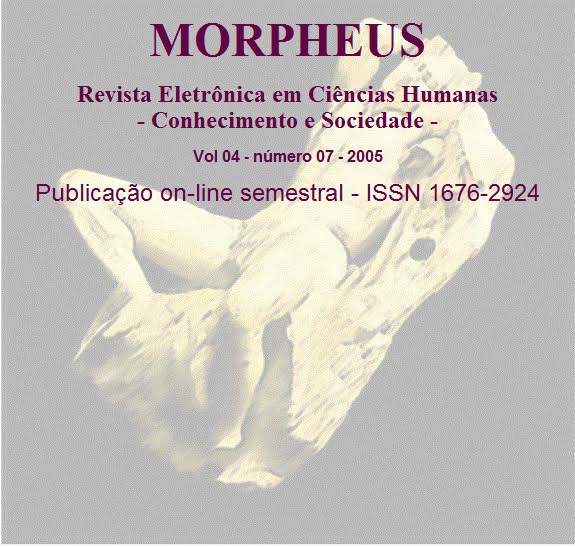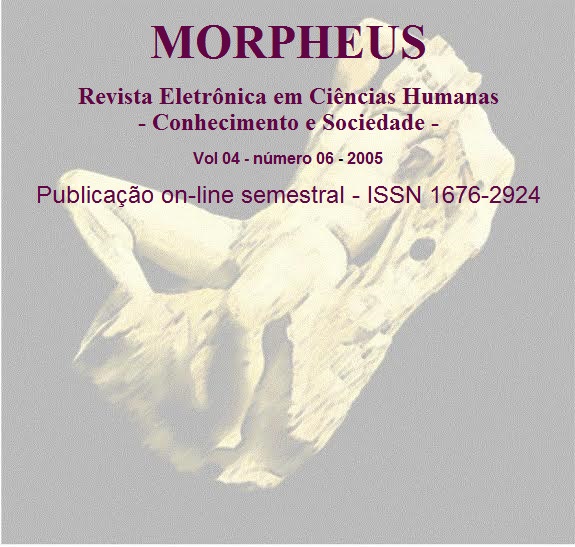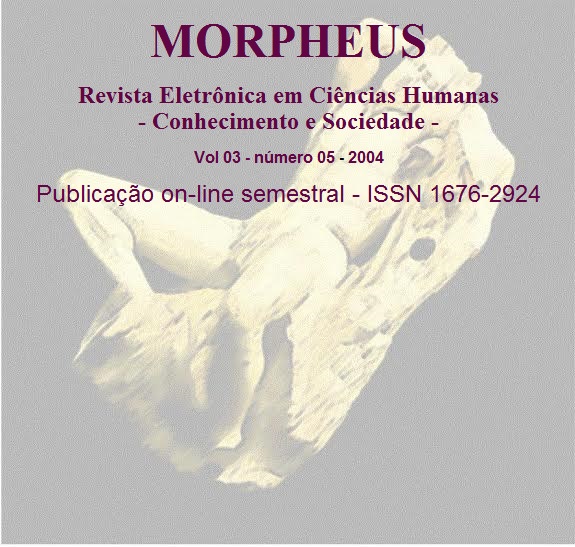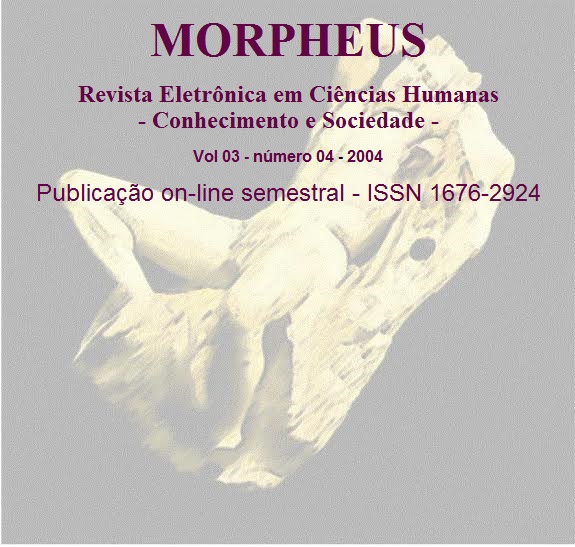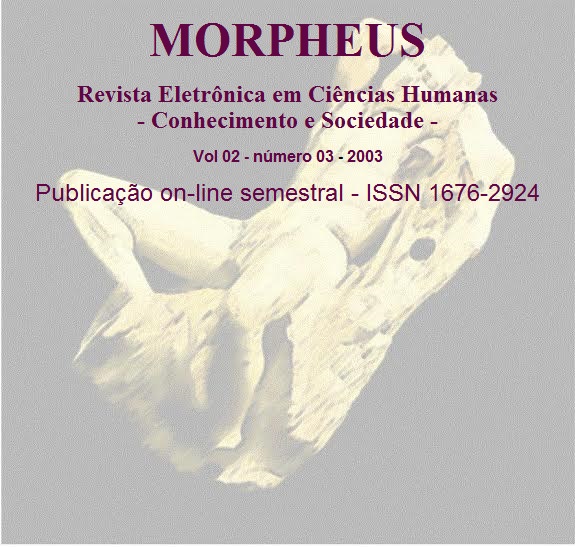Archives
-
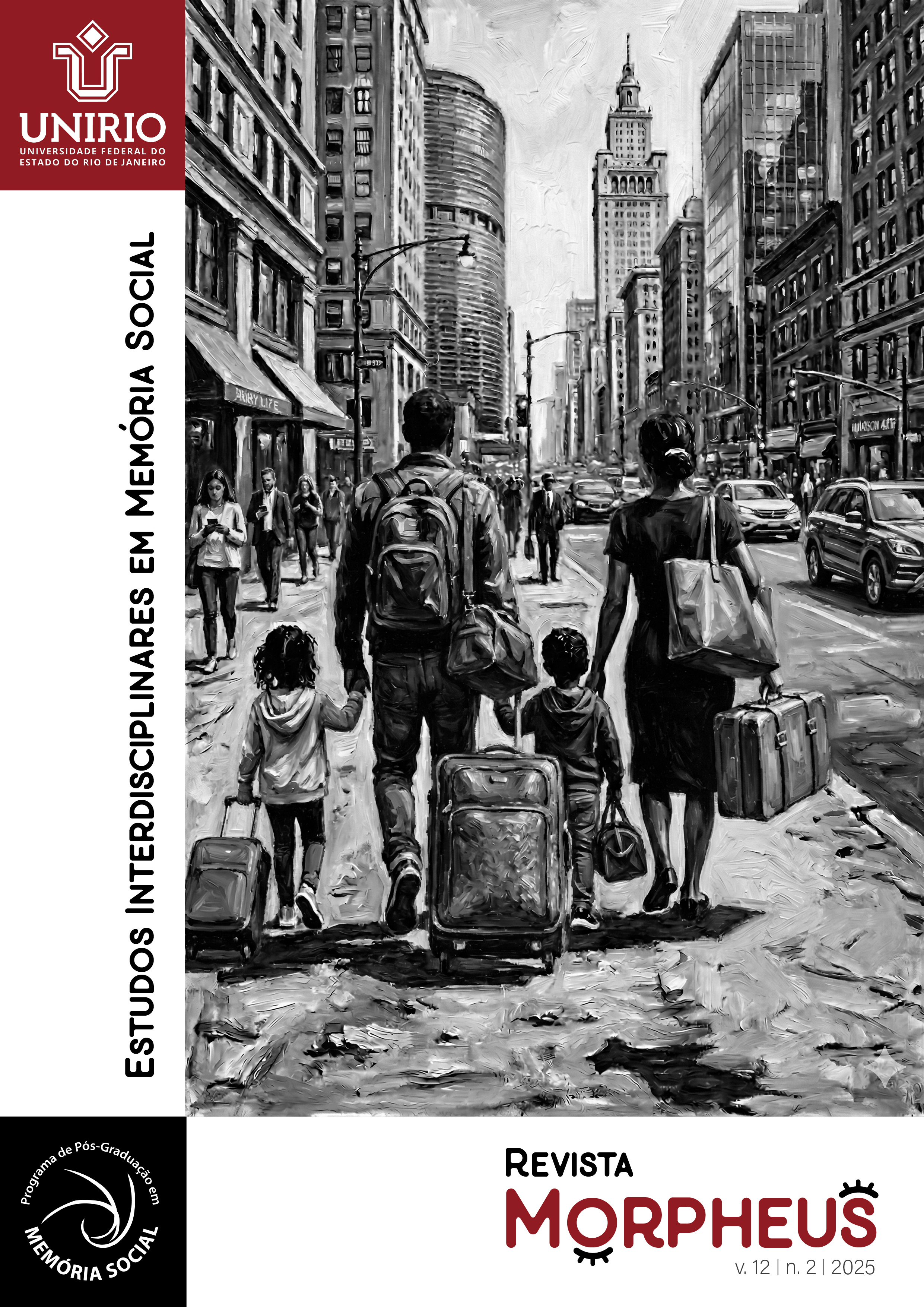
Revista Morpheus, v. 12, n.2
Vol. 12 No. 2 (2025)O segundo número do volume 12 da Revista Morpheus: estudos interdisciplinares em Memória Social apresenta contribuições originais que interrogam a memória como um campo de forças vivas e tensionadas: espaço de afeto e transmissão, arena de disputas políticas, patrimônio insurgente contra narrativas hegemônicas, rastros fragmentados de acervos e lugar de (re)configuração de subjetividades.
-

Memória Política e Territorialidade
Vol. 12 No. 1 (2025)Esta nova edição da Revista Morpheus: estudos interdisciplinares em Memória Social traz trabalhos apresentados no V Seminário Internacional, realizado no Rio de Janeiro no ano de 2022, com o tema geral “Rede de Memória Política em Perspectiva Latino-americana”. O Seminário aconteceu no Centro de Cultura Raul de Leoni, na cidade de Petrópolis, a partir de uma parceria entre o Núcleo de Memória Política da Universidade Federal do Estado de Rio de Janeiro (UNIRIO) e o Instituto Municipal de Cultura de Petrópolis.
-
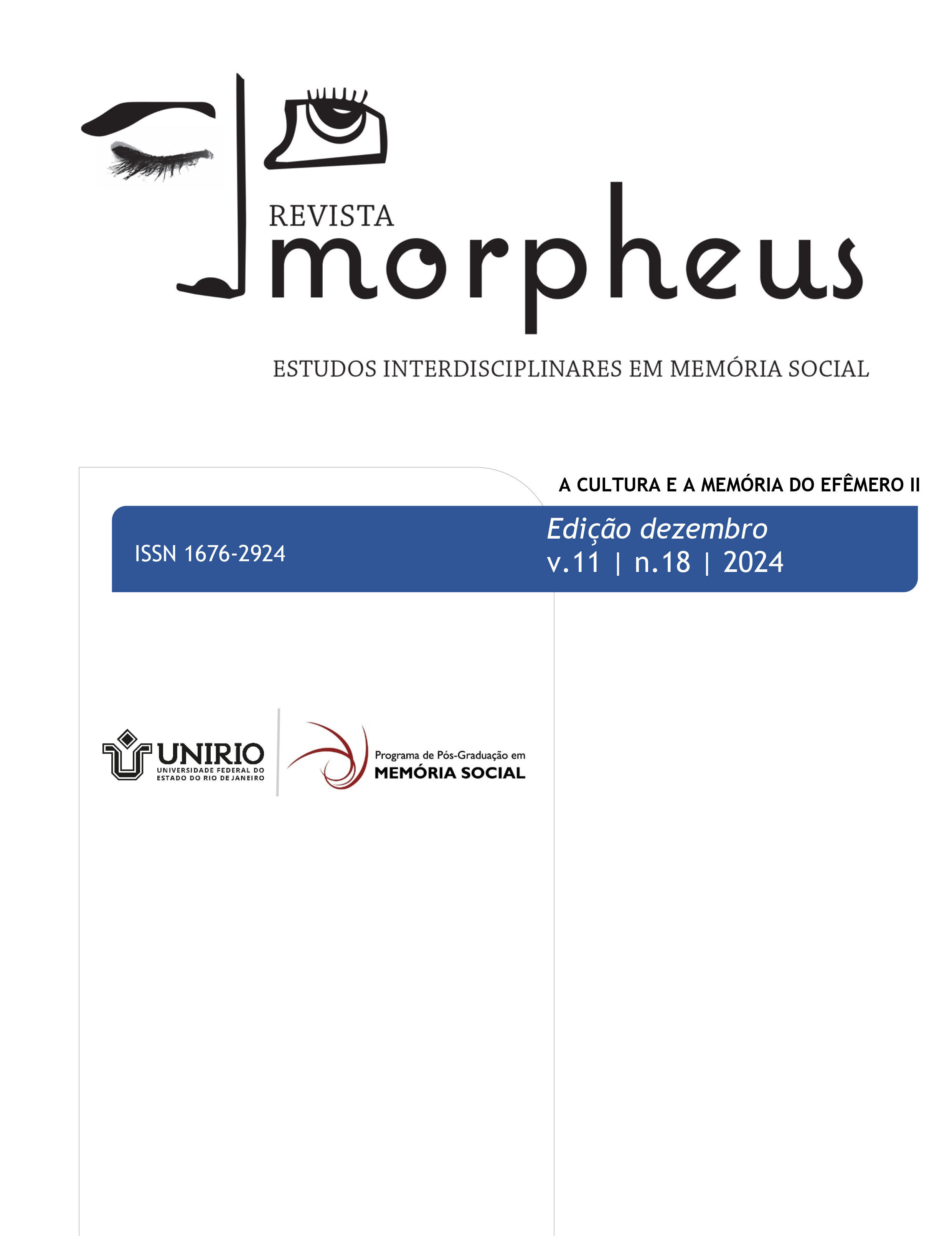
Culture and memory of the ephemeral II
Vol. 11 No. 18 (2024)Memory has an evident, social trait of attending to what remains, under the sign of what returns: days of celebrations, commemorations, festivals. But a day is also that which disappears in the course of events, only returns as a passage, only remains as aura and trace: it is measured by glimpses of horizons, revolutions of the firmament. Etymology – which is memories and stories impregnated in a word – teaches us that the ephemeral is what lasts and vanishes on the surface of a day : epi hémera. Morpheus Journal – Interdisciplinary Studies in Social Memory opens the call for papers for volume 10, 2017, numbers 17 and 18. Culture and memory of the ephemeral is the subject of the dossier that will gather contributions (original articles, essays and reviews) on contemporary trends and the construction of memory. There are many ways of portraying ephemeral-memorial relations: documenting what is provisional, or dispersing inscriptions; building monuments of impermanence, or composing odes to the timelessness of snapshots. On the one hand, cultural tradition and technological innovation may intertwine their complex paths of fluid, intangible performances and stable, protected information in archives and databases. Could social networks play a leading role in safeguarding oral narratives and collections of memorial objects from communities and groups? What do information and misinformation mean in the context of the political erasure of collective and ecological memories? On the other hand, given the accumulation of planetary-scale impasses, we must also face omens and announcements of the ephemerality of culture and history. Will different kinds of mnemonic praxes, reinvented traditions, disseminated interculturalities and ethnohistoricities be capable of breaking the destructive inertia of expropriative knowledge and technologies of war? Since the ephemeral, as a form of memory, never ceases to refer to what is sensory and corporeal, can the habitual sense of erasure and determent make way for other senses of detachment and of reattachments? Can ruins of ruins, traces of what is unregistrable be valued as historical experience? When and how can different ways of knowing interweave in alternative pasts and futures? These are just some key questions, among many others, that can be unveiled in the interdisciplinary territories of academic studies.
-

Culture and memory of the ephemeral I
Vol. 10 No. 17 (2017)Memory has an evident, social trait of attending to what remains, under the sign of what returns: days of celebrations, commemorations, festivals. But a day is also that which disappears in the course of events, only returns as a passage, only remains as aura and trace: it is measured by glimpses of horizons, revolutions of the firmament. Etymology – which is memories and stories impregnated in a word – teaches us that the ephemeral is what lasts and vanishes on the surface of a day : epi hémera. Morpheus Journal – Interdisciplinary Studies in Social Memory opens the call for papers for volume 10, 2017, numbers 17 and 18. Culture and memory of the ephemeral is the subject of the dossier that will gather contributions (original articles, essays and reviews) on contemporary trends and the construction of memory. There are many ways of portraying ephemeral-memorial relations: documenting what is provisional, or dispersing inscriptions; building monuments of impermanence, or composing odes to the timelessness of snapshots. On the one hand, cultural tradition and technological innovation may intertwine their complex paths of fluid, intangible performances and stable, protected information in archives and databases. Could social networks play a leading role in safeguarding oral narratives and collections of memorial objects from communities and groups? What do information and misinformation mean in the context of the political erasure of collective and ecological memories? On the other hand, given the accumulation of planetary-scale impasses, we must also face omens and announcements of the ephemerality of culture and history. Will different kinds of mnemonic praxes, reinvented traditions, disseminated interculturalities and ethnohistoricities be capable of breaking the destructive inertia of expropriative knowledge and technologies of war? Since the ephemeral, as a form of memory, never ceases to refer to what is sensory and corporeal, can the habitual sense of erasure and determent make way for other senses of detachment and of reattachments? Can ruins of ruins, traces of what is unregistrable be valued as historical experience? When and how can different ways of knowing interweave in alternative pasts and futures? These are just some key questions, among many others, that can be unveiled in the interdisciplinary territories of academic studies. -

Vol. 9 No. 16 (2016)
Este número da Revista Morpheus – Estudos Interdisciplinares em Memória Social, organizado pelos professores Javier Alejandro Lifschitz e Francisco Ramos de Farias, tem como tema “Os usos políticos da memória”. No sentido de abordar a amplitude da temática proposta, esta edição recebeu contribuições inéditas voltadas para amplos aspectos da memória, abarcando os campos político, ético e de agenciamento de grupos que disputam perspectivas acerca do passado. Assim, volta-se para os conflitos, modalidades de institucionalização e ações de memória em diferentes marcos institucionais, bem como para a repressão, resistência e conflitos de memória. Em especial aborda as narrativas memoriais na esfera pública, em espaços urbanos, ou periféricos e de expressões das artes. Propõe ainda tratar a memória como colecionismo social e políticas de apagamento, incorporando reflexões sobre a memória de restos, rastros, ruínas e dejetos. -
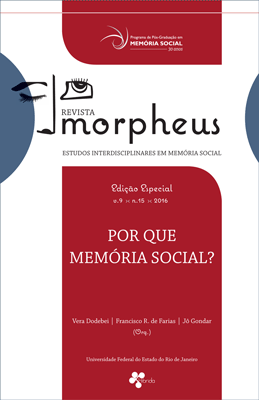
Revista Morpheus (Número especial: Por que memória social?)
Vol. 9 No. 15 (2016)"Por que memória social?" procura delinear os contornos problemáticos desse campo de estudos, apresentando e discutindo as principais questões, construções metodológicas e linhas de investigação que atualmente o desenham. A obra é produto das pesquisas e reflexões realizadas no Programa de Pós-Graduação em Memória Social da Universidade Federal do Estado do Rio de Janeiro (UNIRIO) e conta com a colaboração de 20 autores: Amir Geiger, Andrea Lopes da Costa Vieira, Anna Hartmann Cavalcanti, Daniel do Nascimento e Silva, Denise Maurano, Diana de Souza Pinto, Edlaine Campos Gomes, Evelyn Orrico, Francisco Ramos de Farias, Javier Alejandro Lifschitz, José Ribamar Bessa Freire, Jô Gondar, Leila Beatriz Ribeiro, Lobélia da Silva Faceira, Lucia M. A. Ferreira, Manoel Ricardo de Lima, Miguel Angel de Berrenechea, Regina Abreu, Sérgio Luiz Pereira da Silva e Vera Dodebei.

